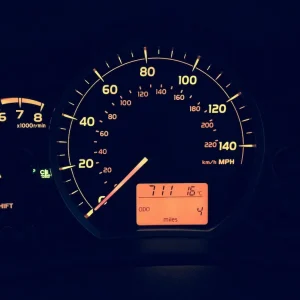Last week I was involved in an online discussion on the LinkedIn website. If you haven’t heard of LinkedIn, it is a website where business people connect with each other and join groups where ideas are exchanged.
The discussion was about risk assessing company drivers and if it applied to grey fleets. One contributor said, as a small business with less than five employees, it was far too expensive for him to conduct risk assessments and he wouldn’t make any money if he spent his time complying with government red tape.
It was pointed out to him that he should view the small investment not as an expenditure but as an investment, and the discussion then went on to all the benefits of managing occupational road risk.
However, he still insisted that he couldn’t afford to risk assess and provide training to his four drivers. He then went on to say: “If I did everything correctly I would have to also provide manual handling training, so that staff can carry the boxes to and from their cars.”
At this point of the discussion, I was unsure as whether he really thought the cost would be in the £1000s or he just believed training would involve too much of his and his staff’s valuable time. I explained to him that he could do everything online for less than the cost of a newspaper advert; indeed to prove my point, I offered him five online Driver Risk Assessment logins and five manual handling e-learning logins free of charge. The normal cost of these would be Driver Risk Assessment logins £15 each and Manual Handling e-learning logins £5 each and the total time each member of staff would have taken to complete both modules would be no more than 30 minutes.
Now you would have thought he would have jumped at the chance to ensure he complied with his Duty of Care obligations and ensure that he was covered in the event that one of his drivers was involved in a serious of fatal crash, or indeed suffered back injury from lifting boxes out of their car.
Well I am still waiting for his reply to my offer.
So if the reason some companies big and small don’t comply is not due to cost or time involved in complying, what is the reason?
It can only be, they think it will never happen to them!
The problem is not many companies get prosecuted and, when they do, the punishment is ineffective. Example recently a judge ordered a very large company to pay a £20,000 fine, as well as prosecution costs of £31,250 following an accident where a woman was driving a forklift truck under a roller shutter door. The door came down on top of her head, trapping her and breaking her jaw. A total bill of £51,250 which is petty cash to a large organisation.
If we really want health and safety at work, there needs to be more effective punishment for companies that fail to meet their duty of care! Fines are not the answer, unless they are matched directly to profits. If large companies knew they would be fined 10% of their profit instead of £20,000, would they have allowed their staff to work in unsafe conditions? I doubt it!
Follow BusinessCar on TWITTER





